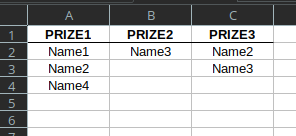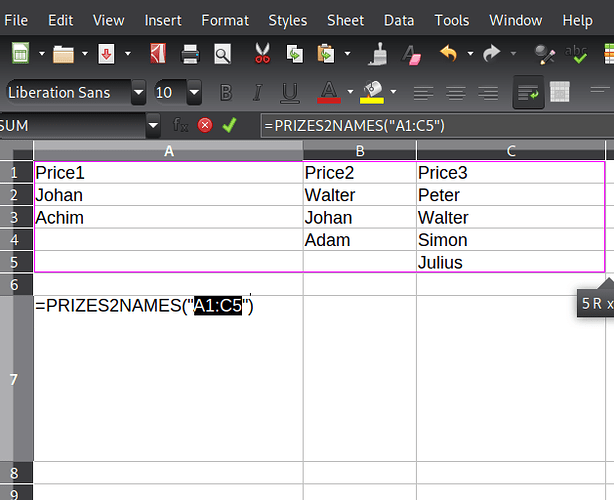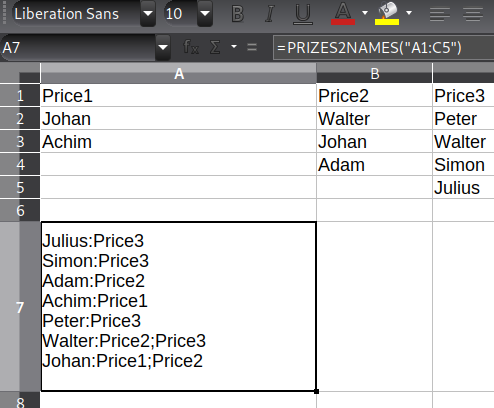OS: OpenSuse Leap 15.1
LibreOffice Version: 6.4.4.2
File Format: .ods
I made an account here specifically to ask this question, and I apologize if it’s actually a ridiculous question–basically, there’s something very specific I want to try to set up in this spreadsheet, but I’m not 100% sure it’s even possible to do how I’m imagining.
I want an easy utility to help me organize these online raffles I help manage. I want to be able to sort by prize, or by winner, but without needing to format all the winners in advance. There’s a static number of prizes that are the same every time, while participants tend to drop in and out depending on availability, which makes maintaining a list of winners really unwieldy. The prizes are basically the only static data, with the participants being the open-ended variables that are vexing me.
There’s the basic spreadsheet where I collect data, organized by prize, like so:

That’s the easiest way to keep track of who’s getting what on the fly, since these get pretty fast-paced. But for actually handing out the prizes, it’s easier to track everything by member name (since it’s digital stuff I’m handing out to specific accounts). So maybe on a separate sheet, I want to devise some kind of formula that will look at the entries (the names) and print the column they appear under, e.g:
Name1: Prize1
Name2: Prize1, Prize3
Name3: Prize2, Prize3
And so on. Being able to sort the raw data like this would be super-convenient in larger giveaways, but I can’t seem to find a good way to rig this. I’m asking this here because I’m notoriously bad about overthinking things and I’m sure there’s some very simple solution to this problem that I’m missing. That solution might even be ‘why don’t you just use [x thing] instead’.
Thanks in advance for the advice/metaphorical slap upside the head, and my apologies if I’ve committed some question-asking faux pas here.


